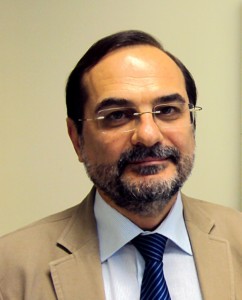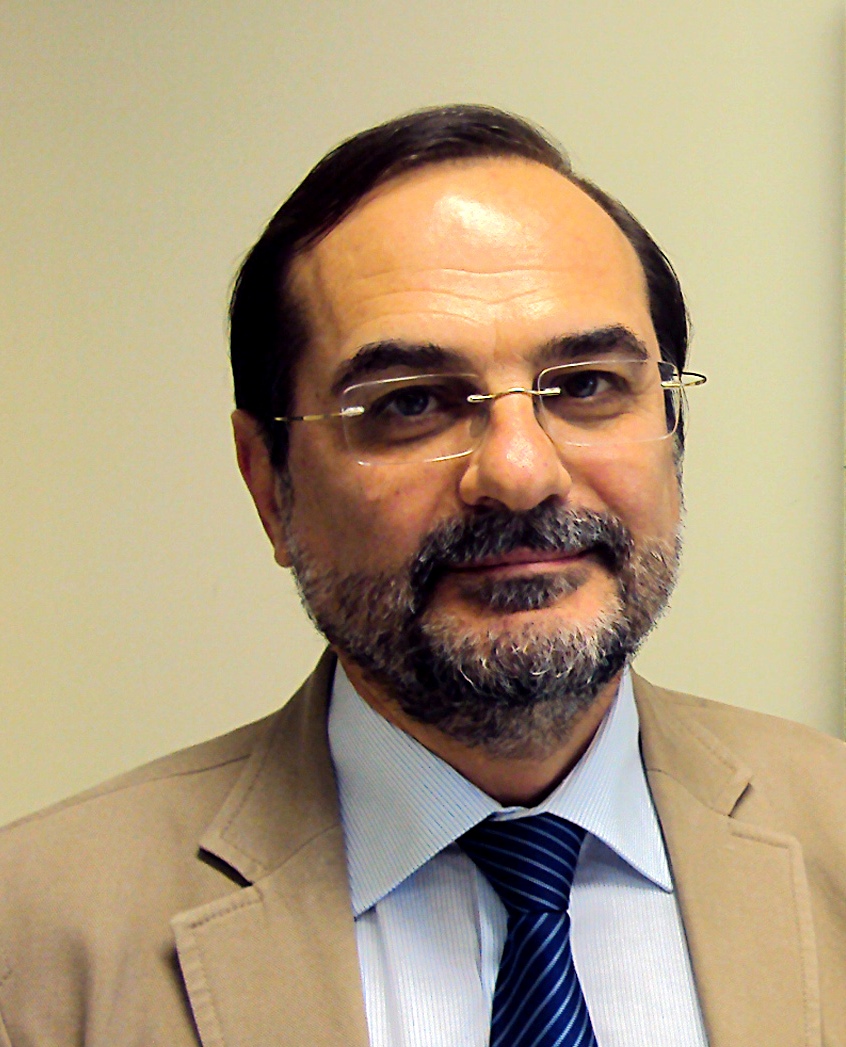
Elizabeth Chalier-Visuvalingam
CHICAGO: Speaking at the World Hindu Congress 2018 to be held here from Sep. 7-9 will be independent Spanish scholar Oscar Pujol Riembau, PhD, Director of the Instituto Cervantes Spanish cultural center now in Fez, Morocco and previously in Rio de Janeiro, Brazil. He will speak on September 8 on “Consequences of the Sanskrit-West Encounter.”
Probably the foremost Sanskritist from Spain, Pujol has compiled and published a comprehensive Sanskrit-Catalan dictionary that he is reworking into Sanskrit-Spanish. He was our neighbor at Banaras Hindu University (BHU) Multi flats guesthouse while my husband Sunthar and I were pursuing postdoctoral research on Hinduism.
- How did you become exposed to India and gained abiding sympathy for Sanskrit culture?
I first went to India accompanying a woman who is now my wife, Mercedes. Once there, I was impressed by the diversity, richness and profundity of Indian life. I had the impression that beneath all the contradictions, Indians had reached some deep understanding about the human condition.
- Tell us about your PhD research in Sanskrit literature at BHU.
Under the unfailing guidance of Professor Shrinarayan Mishra, my PhD consisted in editing and translating the Tantrapradeepa, a 12th C manuscript from Bengal on Sanskrit grammar. I was interested in the ‘capability’ (Saamarthya) of words to be semantically and syntactically related to form compounds.
- How did you maintain your interest in Indic traditions after returning to Spain?
I have been reading Sanskrit for more than 30 years now. My job in Spain at Casa Asia was related to India and involved teaching Sanskrit. Although Indic studies have not taken off in Spain, I was able to collaborate with Indophiles in Madrid, such as professor Felix Ilárraz, who translated the Upanishads into Spanish, and the group around Pedro Soto Adrados, who were publishing the Sarasvati Journal devoted to Eastern traditions.
- What was it like raising a family in India?
My 16 years in Banaras were fortunately in a setting very conducive to the study of Sanskrit. We discovered the life of the (Assi) ghat unfolding under our balcony along the Ganga bank— people bathing, rituals and the occasional quarrels. We then moved to BHU campus where our son Vasant was born. The Multi flat complex hosted many foreign families with plenty of children. He grew up among Indian, Iranian, Italian, Afghani, Swiss play fellows. As our lingua franca was Hindi, Vasant was first bilingual in Hindi and Catalan, before picking up Spanish and English.
My wife was pursuing her studies of Bharat Natyam, first at BHU and then a week each month in Delhi studying under Shrimati Jamuna Krishnan. After 12 years, she did her public debut (Arangetram) in 1999 at the Triveni Auditorium in Delhi with a very positive review in The Hindu.
I have become so adapted, it was hard, especially for Vasant, to return to Barcelona. I had seen the India of the pundit and the India of the goonda. I also learned to see things from an Indian viewpoint because there is one, even if Indians have many different viewpoints. I became a multicultural subject, a person who feels at ease across two or more cultures, like many Indians do in relation to the West.
- How has the discovery of Sanskrit heritage transformed the West’s self-understanding?
By teaching phonetics and grammar to the West, Sanskrit gave rise to modern linguistics. Though social sciences were also affected, I am skeptical regarding parallel transformations of the West’s self-understanding, which remains deeply rooted in its own tradition. Even if Europe is now losing its centrality, we still live in a world dominated by the Western dream of unlimited control over matter and infinite material progress. I would like to see Sanskrit heritage more present in the world today.
- Are Sanskrit traditions, as embedded in caste-hierarchy, inherently oppressive and exploitative?
Though insufficiently familiar with Sheldon Pollock’s recent work, I admire his scholarship and insights into the history of Sanskrit. However, I am tired of Sanskrit being systematically bound to an oppressive structure. Mozart and other court musicians were also part of an oppressive social structure, yet nobody denies the merit of their music. We would stop visiting monuments, if we knew all the injustice and suffering behind them. This is called anachronism. We cannot change the past. We should worry about Sanskrit today and see that it is not inherently oppressive and exploitative, but genuinely inclusive.
- What are your current projects related to Sanskritic traditions and Hindu culture?
I am finishing the Sanskrit-Spanish dictionary which comprises more than 64,000 words. There is growing interest but too few tools to study Sanskrit in the Spanish-speaking countries. The dictionary bridges the gap between Western scholarship and the traditional approach by giving both the modern etymology based on comparative philology and the Indian one according to Panini.







